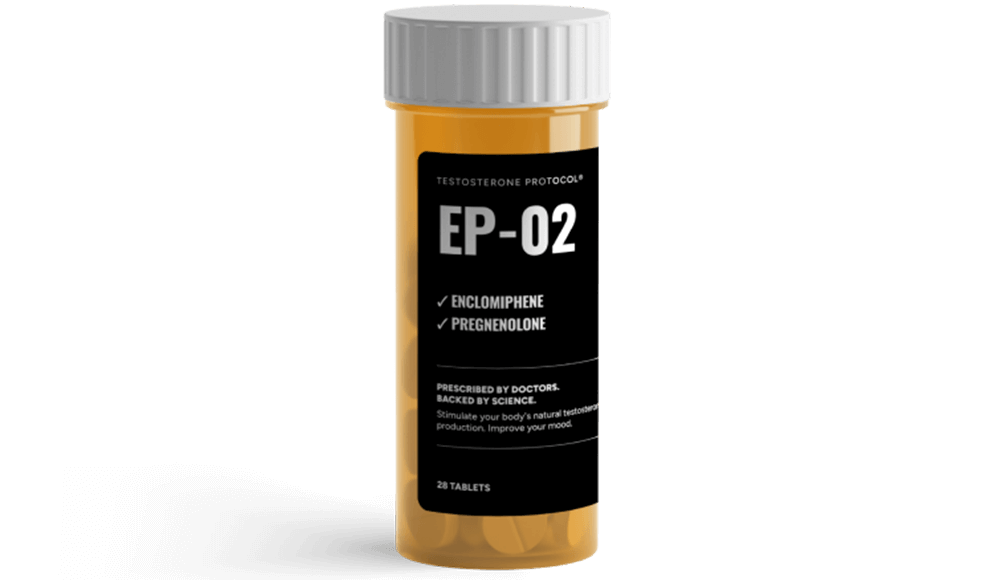How it works
Enclomiphene, the active ingredient in Testosterone Protocol, blocks estrogen receptors and treats long-term hypogonadism (low testosterone).
Enclomiphene citrate is the purified isomer of Clomid (Clomiphene Citrate), which has been FDA approved since 1967 for fertility in women, and has been commonly used off-label in men. Research studies suggest Clomid “is safe and effective with few side effects when used as long-term treatment of hypogonadism (low testosterone)” and is an “effective and safe alternative to testosterone supplementation in [young] men wishing to preserve their fertility.”
How the dosage is optimized
01
Establish health needs and goals
Fill out a medical questionnaire to establish your goals, which are reviewed by a board-certified licensed physician.
02
Test your testosterone levels
CLIA-certified lab tests are shipped to your door so you and your doctor can monitor your testosterone levels before and after starting treatment. We collect blood (without finger pricking) just before beginning the medication to establish a clean baseline.
03
Customize your treatment plan
Based on your health goals and current testosterone levels, your doctor will prescribe a treatment plan that best fits your needs.
04
Re-test your testosterone levels
After 30 days, you’ll receive another CLIA-certified lab test to see if the protocol is working for you.
05
Monitor your progress
You’ll never be left on your own. Your doctor will continue to review and optimize your dosage every 30 days. If you don’t see an increase in your testosterone levels, we’ll refund your money.
What our testosterone test measures
Testosterone optimization demands customization.
There’s no one-size-fits-all approach, which is why the Maximus program evaluates your hormone levels as well as how you feel and function to determine what your appropriate levels should be. This allows us to treat symptoms, not numbers.
Maximus vs. Everlywell testosterone test
Natural vs synthetic testosterone
Testosterone Protocol stimulates your own natural testosterone production.
Since you continue to produce your own natural testosterone, if you decide to stop treatment your body will most likely return to the level it was before treatment.
TRT replaces your testosterone with synthetic testosterone.
When in treatment, the body stops making its own natural testosterone. If/when therapy ends their body's natural testosterone production most likely will not fully recover.
Enclomiphene vs. Other Treatments
vs. Clomid?
Unlike Clomid, which is made up of 38% zuclomiphene and 62% enclomiphene, Testosterone Improvement Protocol will not increase estrogen or cause side effects like mood swings, enlarged breasts, and libido issues because it does not contain zuclomiphene. Zuclomiphene is an estrogen receptor agonist (increases estrogen) that stays in your system a long time and accumulates much more over time than enclomiphene.
And the research shows most of the beneficial effects of clomiphene are due to the enclomiphene, with zuclomiphene “contributing little to the intended outcomes.” Maximus’ cutting-edge innovation leverages purified Clomid to maximize the amount of enclomiphene present, thus maintaining the androgenic benefit of clomiphene citrate without the undesirable effects attributable to zuclomiphene. Increased testosterone levels are achieved while maintaining sperm concentration (unlike TRT).
Zuclomiphene vs Enclomiphine Build-Up In Blood Stream
25mg/Day Clomiphene Dosage
Fig.1 - Huang ES, Miller WL. Estrogenic and antiestrogenic effects of enclomiphene and zuclomiphene on gonadotropin secretion by ovine pituitary cells in culture. Endocrinology. 1983;112(2):442-8.
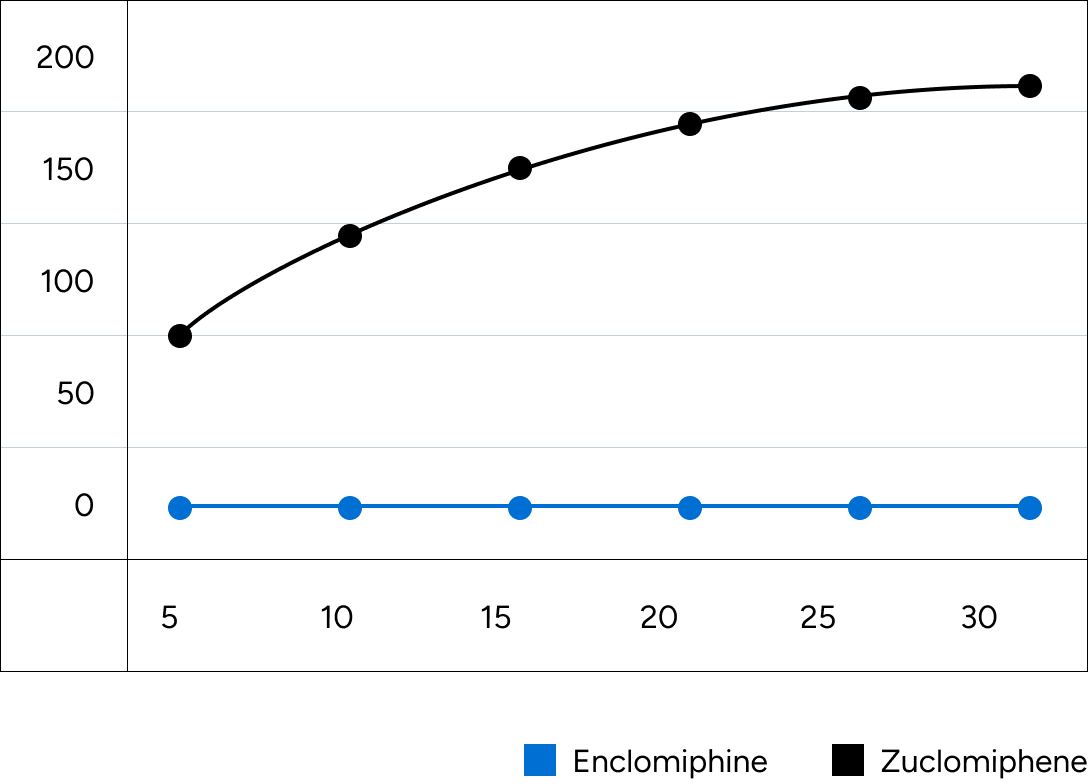
Fig.1 - Huang ES, Miller WL. Estrogenic and antiestrogenic effects of enclomiphene and zuclomiphene on gonadotropin secretion by ovine pituitary cells in culture. Endocrinology. 1983;112(2):442-8.
vs. TRT
Unlike TRT, which replaces your testosterone synthetically, enclomiphene increases your natural testosterone production. As a Selective Estrogen Receptor Modulator (SERM), enclomiphene blocks estrogen, tricking the brain into producing the hormones luteinizing hormone (LH) and Follicle Stimulating Hormone (FSH). This inadvertently increases the testes production of testosterone and sperm, respectively, giving your testosterone a 1.5-2.5x boost without the testicular shutdown, shrinkage, infertility, and dependence of dated alternatives.
Studies comparing enclomiphene for testosterone restoration vs. testosterone gel for TRT show why this approach is superior in individuals who still have normal testicular function. In obese, hypogondal (low T) men, enclomiphone increases testosterone more than testosterone gel and keeps levels more consistently stable.
Clinical Trials with SERMs
Patients who took 6.25 - 25 mg of a SERM increase testosterone levels by 1.5 - 2.5 % with minimal side effects
Fig.2 - Need
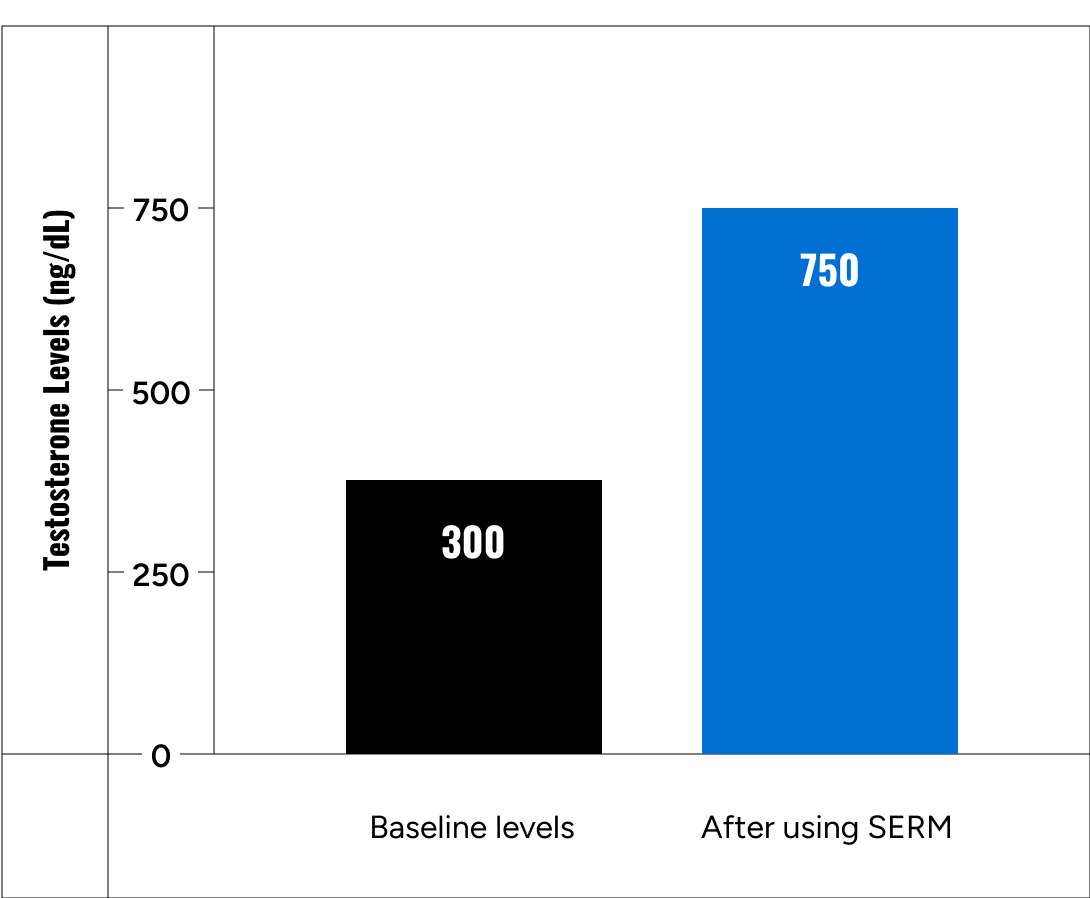
Fig.2 - Need
Zuclomiphene vs Enclomiphine Build-Up In Blood Stream
25mg/Day Clomiphene Dosage

Fig.1 - Huang ES, Miller WL. Estrogenic and antiestrogenic effects of enclomiphene and zuclomiphene on gonadotropin secretion by ovine pituitary cells in culture. Endocrinology. 1983;112(2):442-8.
Clinical Trials with SERMs
Patients who took 6.25 - 25 mg of a SERM increase testosterone levels by 1.5 - 2.5 % with minimal side effects

Fig.2 - Need
Clinical results
T Levels
Studies using enclomiphene for testosterone restoration vs. TRT also show that while both testosterone treatments increase testosterone, enclomiphene does not negatively impact sperm production like TRT.
Testosterone Improvement during treatment
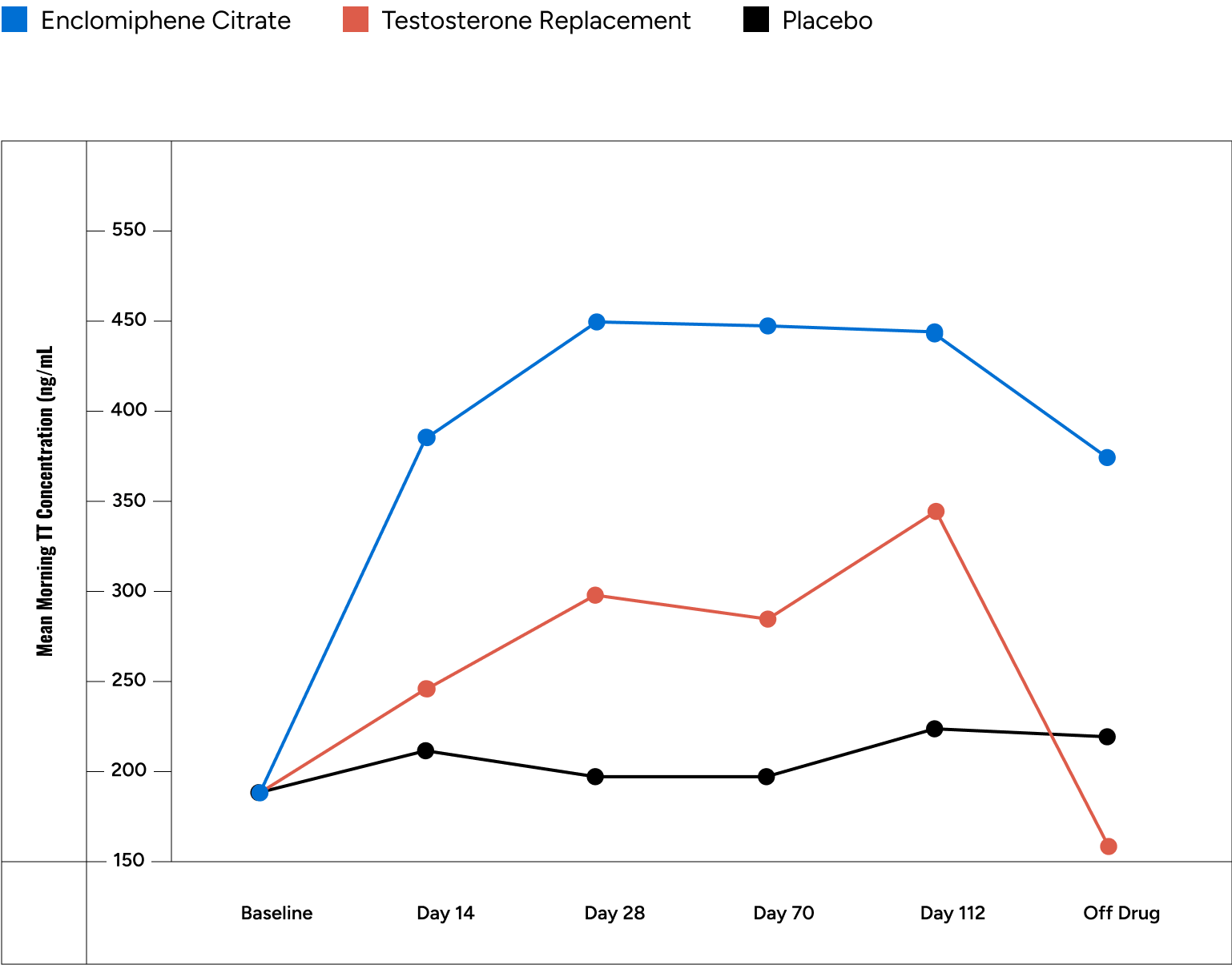
Fig.3 - Kim ED, McCullough A, Kaminetsky J. Oral enclomiphene citrate raises testosterone and preserves sperm counts in obese hypogonadal men, unlike topical testosterone: restoration instead of replacement. BJU Int. 2016;117(4):677-85.
Sperm Concentration
While enclomiphene enhances how the body naturally and endogenously produces testosterone and sperm, TRT significantly impairs LH and FSH production. This inhibits the endogenous production of testosterone and sperm, causing testicular shrinkage and external dependence on testosterone gel.
TRT vs Enclomiphene Clinical Results on Sperm Concentration
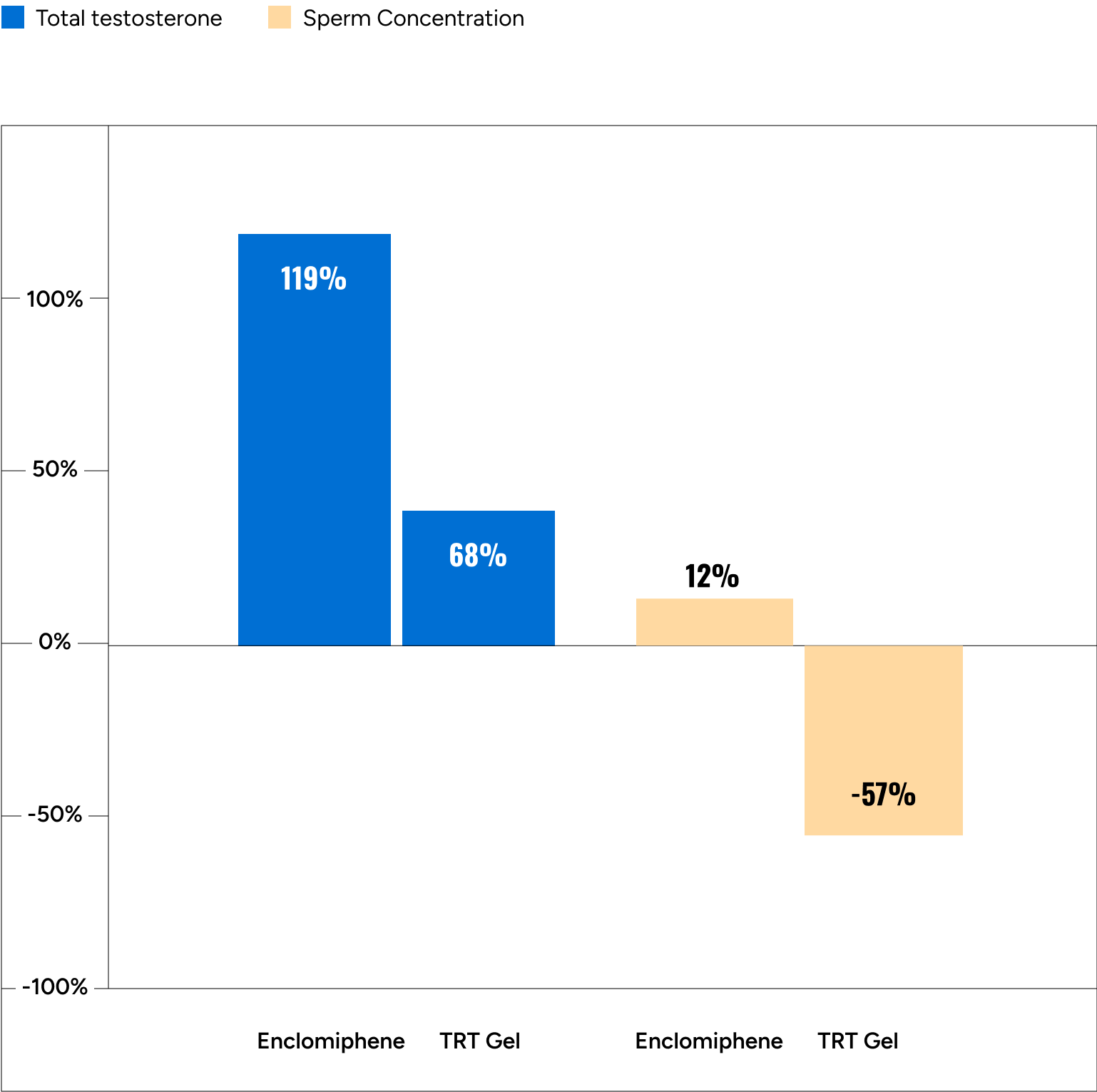
Fig.4 - Earl JA, Kim ED. Enclomiphene citrate: A treatment that maintains fertility in men with secondary hypogonadism. Expert Rev Endocrinol Metab. 2019;14(3):157-65.
FSH/LH levels
Enclomiphene works by supporting the body's natural production of luteinizing hormone (LH) and follicle-stimulating hormone (FSH), which are essential for making testosterone and sperm. This means it helps maintain healthy sperm quality and keeps testicular size normal. On the other hand, traditional testosterone replacement therapies (TRTs) can interfere with this balance, sometimes reducing sperm production and causing testicular shrinkage.
TRT vs Enclomiphene Clinical Results on FSH/LH levels
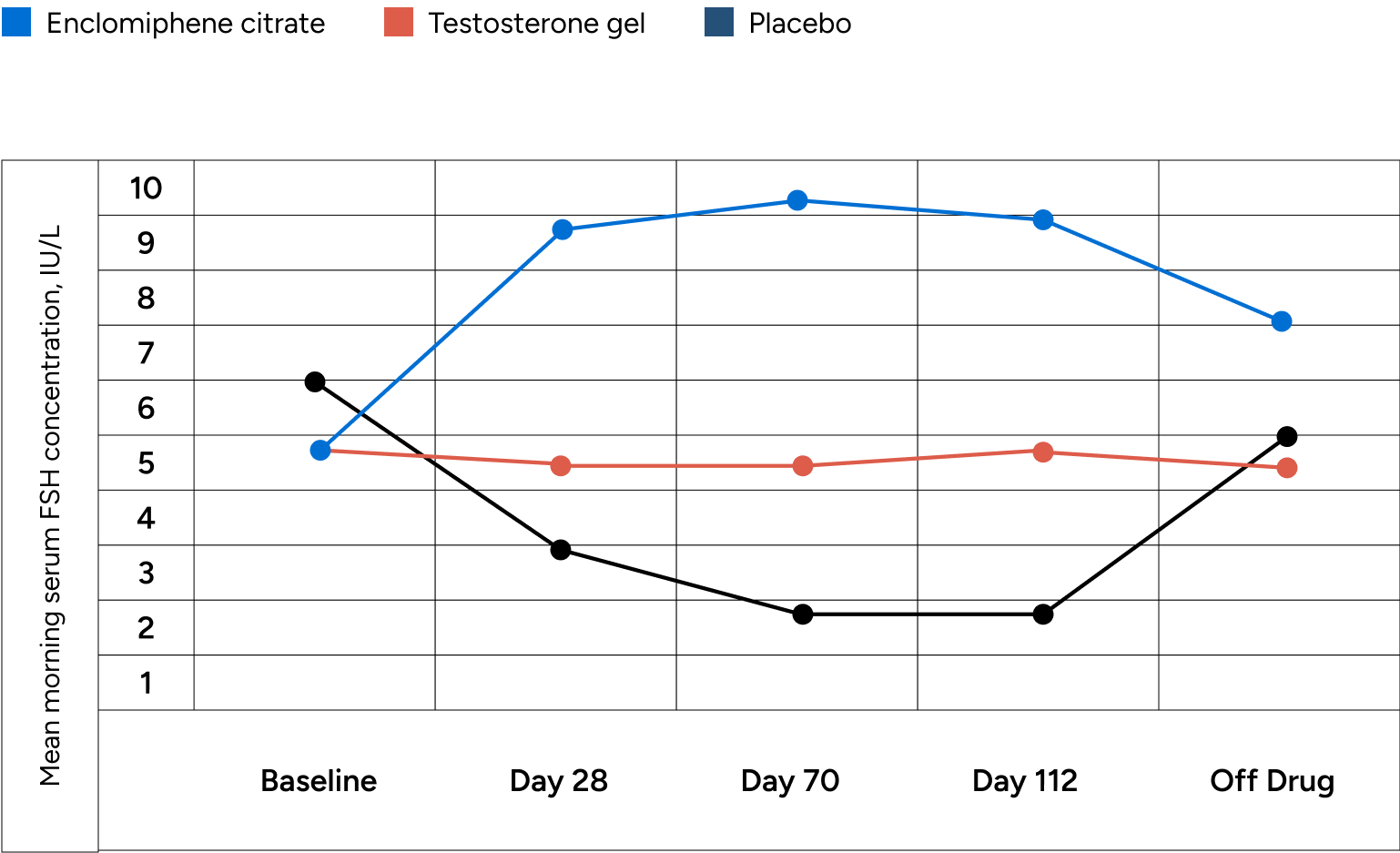
Fig.5 - Kim ED, McCullough A, Kaminetsky J. Oral enclomiphene citrate raises testosterone and preserves sperm counts in obese hypogonadal men, unlike topical testosterone: restoration instead of replacement. BJU Int. 2016;117(4):677-685. doi:10.1111/bju.13337
Drug facts
Ingredient
enclomiphene
How it works
Experience a 1.5-2.5X testosterone boost without the testicular shutdown, shrinkage, infertility, and dependence of dated alternatives.* Learn more about enclomiphine.
Testosterone Restoration
Unlike TRT, which shuts down your body's production of testosterone, this protocol blocks estrogen receptors and increases your testosterone through natural stimulation.
Drug Facts
Serving size:
1 tablet a day
Per bottle:
30 tablets
Application:
Oral or sublingual
Enclomiphene:
3.125 - 25mg
Pregnenolone
5-20mg
Minimal side effects
The adverse effects of enclomiphene have been extensively studied during phase II and phase III clinical trials. The drug is generally well tolerated with side effects occurring relatively rarely.
Side effects
% of patients
Headache:
3.3%
Common Cold:
1.7%
Nausea:
2.1%
Hot flush:
1.7%
Diarrhea:
1.9%
Joint pain:
1.2%
Dizziness:
1%

